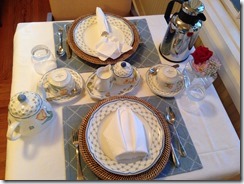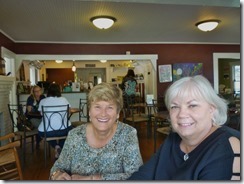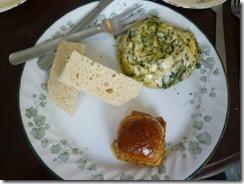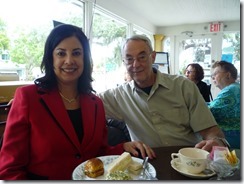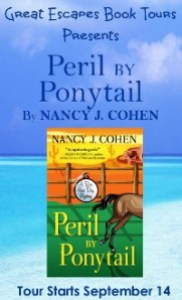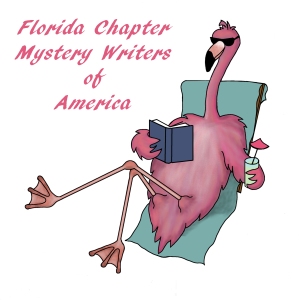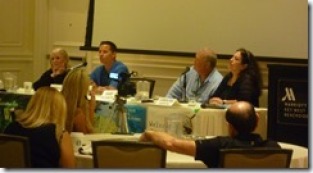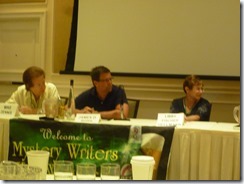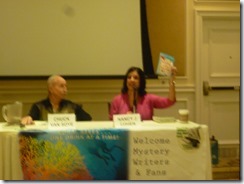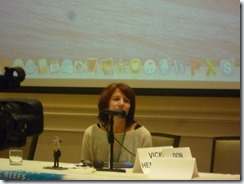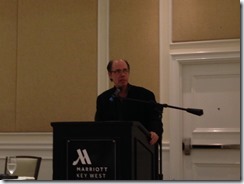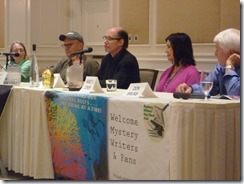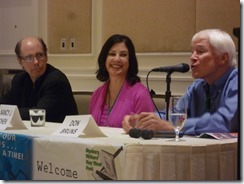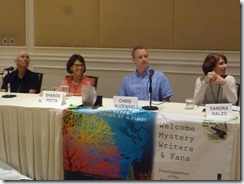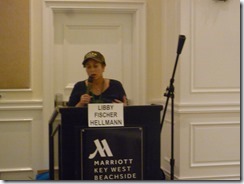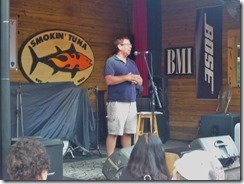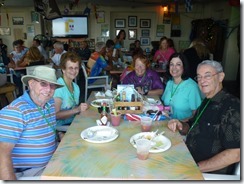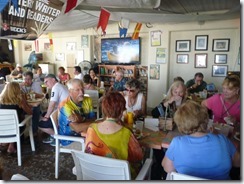I’m in the midst of edits for Facials Can Be Fatal, #13 in the Bad Hair Day Mysteries. A couple of the problems I’m fixing are things you should be looking for in your work, also. These include too many mentions of previous stories, info dumps, and extraneous material that doesn’t add to a scene. My own read-through has revealed inconsistencies that I didn’t catch during my prior rounds. Here are some examples.

Excerpt One—Original Scene
“Was the other ship ever found?” Dalton’s rapt expression showed his fascination.
As a history buff, he must be soaking this in, Marla thought with fond affection.
Sam’s face folded into a frown. “The problem with that wreck site, unlike the deeper water where the Atocha sank, is that undercurrents cause shifting sand dunes. The Santa Margarita broke apart in a wide debris field. Through the years, people discovered a trail of artifacts, from gold chalices to silver coins, jewelry, and swords. Then in 1980, Mel Fisher’s company located a section of the ship’s wooden hull, along with items valued at forty million dollars. However, other portions of the ship remained elusive. Records showed eight hundred ounces of registered gold, one hundred and forty-five silver bars, more than eighty thousand silver coins, and millions of dollars in smuggled contraband still missing.” He ticked off each listing on his fingers.
“So that treasure remains unfound?” Dalton scratched his head as though the magnitude of value astounded him.
Sam got up to pace the room. “Another salvage firm from Key West discovered more relics. They contacted Mel Fisher’s company, since his group had the federal permit to explore those waters, and the two companies formed a partnership. Since then, they’ve recovered many more items. I like this one: sixteen thousand natural pearls in an oval leaden box. The largest weighs in at over fifty-two carats, one of the biggest known natural pearls in the world.”
“That’s amazing,” Marla said. “Those ships must have been heavy with all those coins and ingots aboard. No wonder they sank.” Gold jewelry and pearls, emeralds from Columbia, silver from Mexico . . . who wouldn’t kill to obtain such bounty? “How many more ships like those two remain undiscovered?”
“Quite a few.” Sam went on, his words rushing together in his enthusiasm. “In 1733, the Nuestra Espana fleet left Havana for home with three armed galleons and eighteen merchant ships. They encountered a hurricane off Marathon. The San Jose alone was carrying almost seven million pesos in gold when it sank. Many of these wreck sites are charted on maps and have been studied by archaeologists as part of the state’s historical preserves.”
“And yet, not all of the ships that sank have been found?” Marla imagined there must be records of missing cargo dating back in history.
He nodded. “As I said, some thirty to forty known ships have sunk in our coastal waters. There could be hundreds more.”
“What are the laws pertaining to these wrecks? Who owns them if found?”
“According to the Abandoned Shipwreck Act of 1988, any historic find becomes the property of its respective state.”
Excerpt One–Revised Scene
“Was the other ship ever found?” Dalton’s rapt expression showed his fascination.
Sam’s face folded into a frown. “The problem with that wreck site, unlike the deeper water where the Atocha sank, is that undercurrents cause shifting sand dunes. The Santa Margarita broke apart in a wide debris field. Through the years, people have discovered many of its relics, including a lead box filled with sixteen thousand pearls.”
“That’s amazing,” Marla said. “Those ships must have been heavy with all the gold coins, silver bars and jewels aboard. No wonder they sank. How many more ships like those two remain undiscovered?”
“Quite a few.” Sam got up to pace the room. “Most of the known wreck sites are charted on maps. They’re part of the state’s historical preserves.”
“Who owns the salvage rights to a sunken ship?” Marla asked, wondering about laws regarding lost treasure.
“According to the Abandoned Shipwreck Act of 1988, any historic find becomes the property of its respective state.”
<><><>
Excerpt Two—Original Scene
They’d requested a table outside at the rear but under the covered portion, not the lounge part that was just for drinks. Their table, covered with a white cloth, was already set with wine glasses, bread plates, and a glass-enclosed candle when they took their seats. Further out on the wooden deck, the drinkers had bare wood tables open to the sea breeze with some shade provided by green umbrellas. The tables and chairs had been bleached by the sun and looked more ashen in color.
They faced east and the Atlantic Ocean. A tree grew from under the deck, dropping the occasional debris when the wind blew. The view to the side enchanted her with its sandy beach and graceful coconut palms, but she couldn’t see the water stretching out to sea. The sky had darkened and there wasn’t enough illumination from the moon.
After the waitress uncorked their bottle of Chardonnay and they had sampled their first glass, Marla ordered the Boston lettuce salad with watercress, blue cheese, apples, and spiced pecans, while Dalton couldn’t pass up the conch chowder. They both had fish for their entrées; he got the soy glazed grilled tuna steak and she ordered pan-roasted salmon. Dalton, sitting next to a potted red croton plant, reached for a slice of crusty bread.
Excerpt Two– Revised Scene
They’d requested a table in the outside dining area at the rear of the house. Their white-clothed table held wine glasses, bread plates, and a glass-enclosed candle. They faced east and the Atlantic Ocean. The view to the side enchanted Marla with its sandy beach and graceful coconut palms, but she couldn’t see the water stretching out to sea. The sky had darkened, and the moon didn’t provide enough illumination.
After they had sampled their first glass of Chardonnay, they placed their orders. Dalton chose the soy-glazed grilled tuna steak and Marla ordered pan-roasted salmon. Dalton, sitting next to a potted red croton plant, reached for a slice of crusty bread.
<><><>
Excerpt Three—Original Scene
Howard lived in Mangrove Isles, a community of pricey homes bordered by canals in east Fort Lauderdale. Since they were already on A1A, it didn’t take them long to get there. His two-story house was well-maintained with iron grillwork on a second-story balcony, ceiling fans on a covered porch, and white outdoor wicker furniture. Majestic palms and other tropical greenery graced the front lawn. The driveway’s red pavers led to a detached three-car garage.
As Dalton parked along the curb, Marla looked up the house via a real estate site on her cell phone. “It’s worth over two million,” she said with a sense of awe, wondering if Howard had a yacht docked out back like many of his neighbors. “Would you believe he has five full bathrooms? The place is listed at nearly forty-three hundred square feet.”
“It must cost a lot of money to maintain.”
“Does he live alone, or is he married?” She didn’t recall his family status.
“He got divorced eight years ago. His kids live with the ex-wife.”
Excerpt Three–Revised Scene
Howard Cohn lived in Mangrove Isles, a community of pricey homes bordered by canals in east Fort Lauderdale. His Mediterranean-style villa had iron grillwork on a second-story balcony, ceiling fans on a covered porch, and hurricane impact windows facing the front lawn. Tropical greenery bordered a paved walkway to the door.
“Does Howard have a family?” Marla asked, unable to recall his marital status.
“He got divorced eight years ago. His kids live with the ex-wife.”
So what do you think? Are these revised versions better? What are your main weaknesses that you look for in revisions?
<><><>
Visit my discussion at Booklover’s Bench to see why I started out in a nursing career but I don’t write about a nurse sleuth. Leave a comment for a chance to win a copy of Body Wave. http://bookloversbench.com/lets-talk-with-nancy-j-cohen-2/













